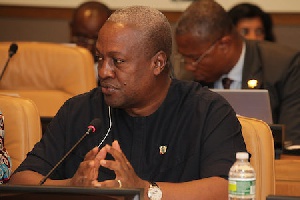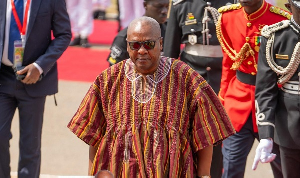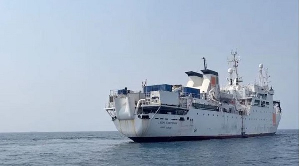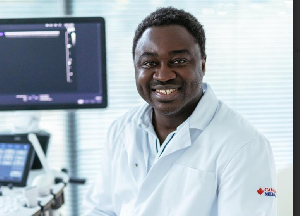President John Mahama is living up to his promise to revamp the economy, Minister of Communication, Dr Edward Omane Boamah has said.
“President Mahama is walking the talk in terms of transforming the structure of the Ghanaian economy,” Boamah said at the last in a series of the Government for the People Forum held in the national capital, Accra Thursday.
The President, Boamah said: “Made mention of the importation of sugar. The Komenda sugar factory project has commenced.”
“He made mention of the importation of rice. Through the export development and agricultural development fund, the Ministry of food and agriculture and the ministry of trade and industry are injecting additional resources in local rice production.
“He spoke about the poultry industry and the importation that we see year-in year-out over the years, and as we speak now, the 20-million broiler project has also commenced.
“It is expected that by the end of 2016, we would have reduced importation of poultry products by 40 percent. This will culminate in forex savings of about $132 million. This will obviously stabilise our currency even further,” Dr Boamah said.
President John Mahama recently said at the 30th edition of the national best farmers’ awards ceremony that Ghana can reduce its balance of payment by about $1.5 billion annually by merely eating what the country’s farmers grow, instead of importing those same things.
Speaking on the theme: “Eat what you grow”, President Mahama said sticking strictly to the mantra will promote economic growth.
“It will save Ghana $1.5 billion in import bills and reduce our balance of payment,” he explained.
He said local rice production has seen a 60% increase in Ghana, adding that the country may well be on its way to becoming a net exporter of rice.
“We have seen an increase of rice production. Rice production in Ghana has increased by more than 60%,” he said at the 30th National Best Farmers Day Award ceremony at Sefwi Wiawso in the Western region Friday December 5, 2014.
Ghana currently imports rice to the tune of US$500million every year. “The last statistics was US$470million worth of rice,” the President decried as he urged Ghanaians to eat what they grow.
Apart from rice, US$1 billion of other produce which are produced in Ghana or can easily be produced in Ghana are also imported. Meanwhile, the country’s yearly exports hover around US$13 billion while its imports bill stands at about US$17 billion.
The President said the development in local rice production means “we are growing more local rice and you can see the attractiveness of the rice industry by the investment that has started to be made by the private sector in this industry.”
“Several private sector business people have set up rice milling plants in various parts of the country and are buying locally produced rice and milling it not only for our local market but also for export.
“And it is my belief that if this trend continues, Ghana should become a net exporter of rice in the next few years,” President Mahama said.
The President also revealed that Ghana has achieved self-sufficiency as far as maize production and other produce are concerned.
“We have achieved self-sufficiency in maize production and indeed last year for the first time in many years we were able to export maize through the World Food Programme… The World Food Programme bought some maize on the Ghanaian market for export to the Sahelian region where they have humanitarian programmes of food relief. We have achieved self-sufficiency in yam production. Indeed we are over-producing yam, and we are an exporter of yam to Europe and other destinations.
“We have achieved self-sufficiency in cassava production and we are producing enough cassava to feed ourselves. We have achieved self-sufficiency in plantain production and plantain is available everywhere in this country.”
The President, however, said more needs to be done in vegetable production. “One area we need to increase production is in the production of vegetables. Vegetables are easy to grow, and it is something that we can take up. There is no reason why we must continue to import vegetables from South Africa. Several of our supermarkets are receiving vegetables: carrots, onions, tomatoes and other such vegetables from South Africa. We must make it our vision to produce these vegetables locally and supply to these supermarkets.
“We have also invested in sugar production. As many of you are aware, just a few months ago, I cut the sod for the reconstruction of the Komenda Sugar Factory. And we are going to have an out-grower system that will feed the factory with sugarcane and it is my hope that when that factory starts working it should be able to produce 50% of the sugar that we eat in this country,” he added.
Mahama also said the Government is investing the poultry industry to make it more vibrant and viable.
“We also have extended assistance to the poultry sector. And major poultry enterprises are being given assistance from the Export Development and Agricultural Investment Fund, EDAIF, in order to expand their production of poultry.
“At the same time we are reducing and restricting the import of poultry in order that we can give a chance to local poultry producers to have a fair access to our local market. So for those who are interested in poultry it is a business you can go into and make a lot of money.”
General News of Thursday, 18 December 2014
Source: starrfmonline.com

















